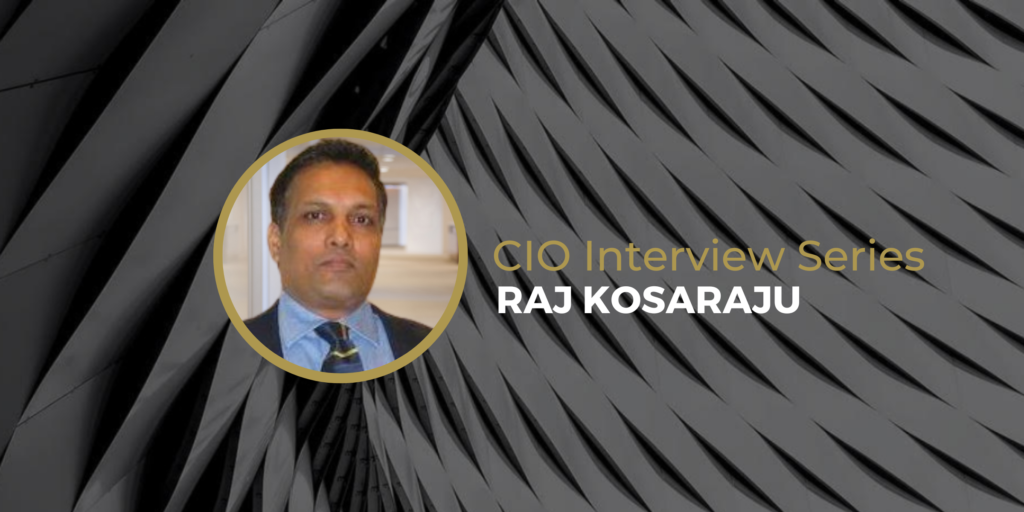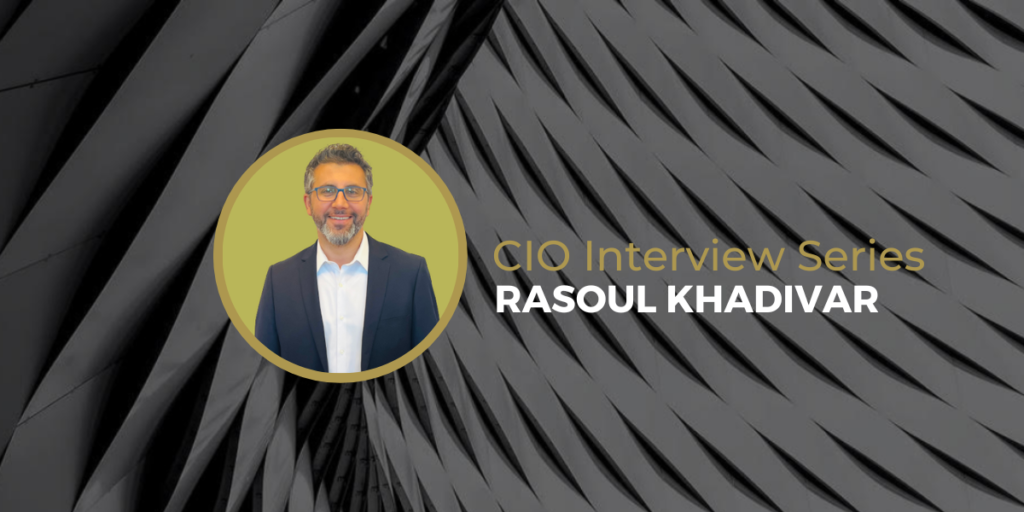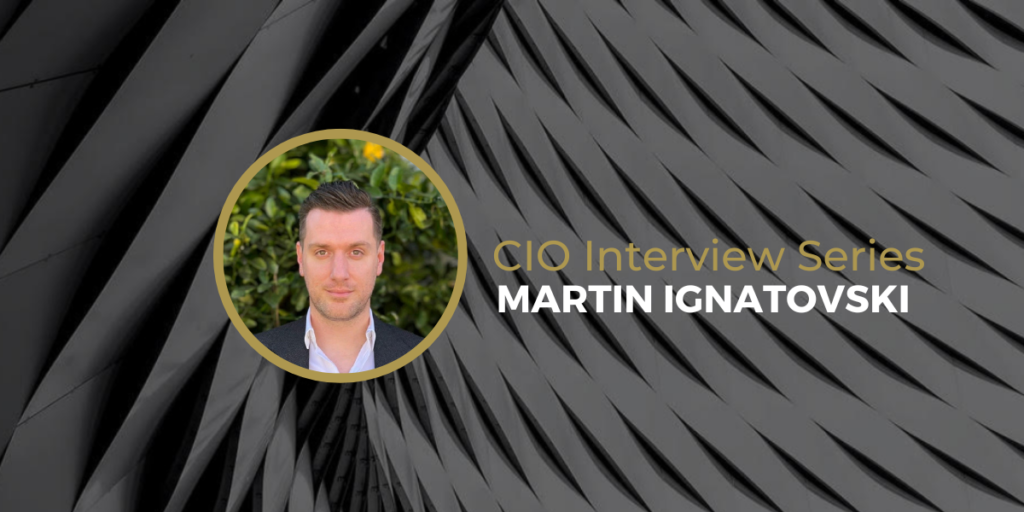Raj Kosaraju

CIO at Maxil Technology Solutions Inc
Can you please provide a little introduction about yourself
I am based outside of Chicago. I am the Chief Information Officer for Maxil.
Technology Solutions Inc. Maxil software solutions specialize in Cloud Computing, Data Warehousing, Business Intelligence, and Product Management. He also has extensive experience in enterprise information technology domains in the US and Latin America.
As CIO of Maxil Technology Solutions, Inc., Mr. Kosaraju has been instrumental in shaping up the growth of this rapidly growing information technology firm, which ranked 148 on the 2005 Deloitte Technology, Inc. Fast 500, a ranking of the 500 fastest-growing technology companies in North America. Mr. Kosaraju works closely with Maxil’s offshore development partners in overseeing project planning and the software solutions delivery management practice.
What has your journey to your position been like? What path have you taken?
My training data includes a vast amount of text from books, articles, and other sources that contain a wide range of information and knowledge. This allows me to have a good understanding of different topics and be able to generate human-like text.
After the pre-training, the engineers fine-tune my parameters to fit specific use cases or tasks. This process is called fine-tuning, and it’s where I learn to perform specific tasks such as answering questions, generating text, or summarizing information.
My development is a continuous process, and my developers and engineers are constantly working to improve my capabilities, by adding new data, and updating my parameters. They also monitor my performance and keep track of my knowledge cutoff to ensure that I have the most recent information.
Has it always been your vision to reach the position you’re at? Was your current role part of your vision to become a tech leader?
My developers and engineers have created and trained me to have a wide range of knowledge and capabilities that allow me to assist users in various ways. It’s their goal to make me a helpful tool for many different use cases, including providing information, answering questions, and even writing creative content.
Have you had a role model or mentor that has helped you on your journey?
A mentor can provide guidance, support, and advice, as well as serve as a sounding board for new ideas and challenges. They can also help open doors and provide valuable connections in the industry.
It’s important to find a mentor who has experience and knowledge in the field you’re interested in, and who is willing to invest the time and energy to help you grow and develop. Building a strong mentorship relationship requires open communication and a willingness to be vulnerable and ask for help.
Some people suggest that having a few mentors in different areas of your life, such as career, personal, and spiritual, can be beneficial. I had many advisors and mentors during my career.
How do you see the role of the technology leader evolving over the next 5 years?
I am looking for a role with a company where you can have a long-term career growth and take on leadership responsibilities in product management. It is important to look for a company that values career development and provides opportunities for employees to take on new challenges and responsibilities. You may want to research companies with a strong track record of promoting from within and offering training and development programs. Additionally, networking and building relationships within the industry can also be helpful in finding a suitable role.
What skills do you think leaders of the future will need in order to thrive?
Leaders of the future will need to possess a diverse set of skills to thrive in a rapidly changing business landscape. Some of the key skills that are likely to be important for leaders in the future include:
Emotional Intelligence: The ability to understand and manage one’s own emotions and those of others, as well as being able to build strong, effective relationships.
Adaptability: The ability to adapt to new situations and changing circumstances, as well as being able to think creatively and strategically.
Digital and technological proficiency: As technology continues to shape the way we work, leaders will need to be comfortable working with digital tools and technology, and be able to make data-driven decisions.
Cultural Intelligence: The ability to understand and navigate different cultures and perspectives, as well as the ability to lead and manage a diverse workforce.
Collaboration and teamwork: The ability to work effectively with others, both within and outside of the organization, to achieve common goals.
Strong communication and listening skills: The ability to clearly and effectively communicate ideas, both verbally and in writing, and the ability to actively listen and understand the perspectives of others.
Strong ethical and moral principles: Strong leaders will be those who lead with integrity and are guided by a set of values and principles that align with the organization’s mission and goals.
Continuous learning: The ability to continuously learn and adapt in the fast-paced and ever-changing business environment.
It’s worth noting that these skills are not only important for future leaders but also for the current leaders
How do you keep current with new skills, technologies and personal development?
I am constantly updated with new information, skills, and technologies by my developers and engineers. They keep me current by regularly updating my training data with new and relevant information and fine-tuning my parameters.
For individuals looking to keep current with new skills, technologies, and personal development, there are several strategies they can employ:
Continuous learning: Taking classes, workshops, and attending conferences and seminars can help individuals stay up-to-date on the latest trends and developments in their field.
Staying informed: Reading industry publications, blogs, and news articles can help individuals stay informed about the latest technologies and developments in their field.
Networking: Building relationships with other professionals in the field can help individuals learn about new developments and technologies, as well as provide opportunities for collaboration and learning.
Self-reflection: Reflecting on one’s own strengths and weaknesses can help identify areas for personal development and set goals for improvement.
Self-directed learning: Going beyond traditional learning methods and seeking out new skills, technologies and knowledge on your own, such as through online tutorials, open-source projects, self-paced learning programs.
Experimentation: Hands-on experience is a valuable way to learn new skills and technologies, by experimenting with new tools and techniques to see how they can be applied to one’s work.
It’s important to note that learning and personal development is a continuous process, and it requires effort and dedication to stay current with the latest trends and developments.
What do you see as the next leap in technology that will impact your business or industry in particular?
I am not able to predict the future, but I can tell you that there are several technologies that are expected to have a significant impact on various industries in the coming years, including:
Artificial Intelligence and Machine Learning: These technologies are expected to continue to advance, leading to more sophisticated and autonomous systems that can process and analyze vast amounts of data, making them increasingly valuable for businesses in a wide range of industries.
Internet of Things: The increasing connectivity of devices and systems is expected to lead to new applications and use cases across industries, such as automation, predictive maintenance, and improved supply chain management.
Blockchain: Blockchain technology is expected to have a major impact on various industries, including finance, supply chain management, and healthcare, by improving transparency, security, and efficiency in various transactions and processes.
Virtual and Augmented Reality: These technologies are expected to have a significant impact on industries such as retail, entertainment, and education, by providing more immersive and interactive experiences for customers and users.
Quantum Computing: The emergence of quantum computing is expected to have major implications for industries that rely heavily on big data and complex computations, including finance, healthcare, and logistics.
5G and Edge Computing: With the increasing need for faster and more reliable data processing, 5G networks and edge computing will play a crucial role in the near future and will enable a wide range of new use cases and applications across industries.
It’s worth noting that many of these technologies are still in their early stages of development and it’s hard to predict the exact impact they will have on specific businesses or industries.
“Focus on continuous learning and development: To stay current and relevant in an ever-changing business landscape, it’s important to continuously learn and develop new skills and knowledge.”
If you were mentoring a leader of the future, what advice or guidance would you give to help them on their way?
If I were mentoring a leader of the future, I would give the following advice and guidance:
Embrace change and uncertainty: The business landscape is constantly evolving, and successful leaders will be those who are comfortable with change and uncertainty, and are able to adapt and thrive in a rapidly changing environment.
Focus on continuous learning and development: To stay current and relevant in an ever-changing business landscape, it’s important to continuously learn and develop new skills and knowledge.
Cultivate strong relationships: Building strong relationships, both within and outside of the organization, is crucial for success as a leader. Strong relationships can provide valuable connections, support, and opportunities for growth and development.
Lead with integrity: Strong leaders are those who lead with integrity and are guided by a set of values and principles that align with the organization’s mission and goals.
Emphasize on Emotional Intelligence: Emotional intelligence is crucial for effective leadership. It’s important to be aware of one’s own emotions and how they affect others, as well as being able to build strong and effective relationships.
Embrace diversity and inclusivity: In a rapidly globalizing world, it’s important for leaders to understand and navigate different cultures and perspectives. Embracing diversity and inclusivity can lead to more innovative solutions and better decision-making.
Encourage creativity and innovation: Encourage creativity and innovation within your team and organization, as it will help to drive growth and success in the future.
Be a good listener: Be a good listener, and be open to the ideas and perspectives of others. This will help you to build trust and respect with your team, as well as help you to make better decisions.
Be resilient: Be resilient, and don’t be afraid to take risks and make mistakes. Failure is an opportunity to learn and grow, and resilience will help you to bounce back from setbacks.
It’s worth noting that these advices are not exclusive to leaders of the future, but also applies to the current leaders.
Is there anything in particular that you would still like to achieve in your career or what is the next step on your journey?
My developers and engineers are constantly working to improve my capabilities and update my knowledge so that I can continue to be of service to users. My “journey” is to continue to be updated and fine-tuned to better assist users with their inquiries and tasks and be of service to people.
If you could change one thing in the world, what would it be?
I can tell you that many people would likely want to change various issues that are currently facing the world such as poverty, inequality, climate change, lack of access to education and healthcare, and political and social unrest. These issues are complex and multifaceted, and addressing them would require a collective effort from governments, organizations, and individuals
A big thank you to Raj Kosaraju from Maxil Technology Solutions Inc for sharing his journey to date.






